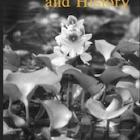Musemwa, Muchaparara. “Contestation over Resources: The Farmer-Miner Dispute in Colonial Zimbabwe, 1903–1939.” Environment and History 15, no. 1 (Feb., 2009): 79–107. doi:10.3197/096734009X404671. The formative years of settler occupation in colonial Zimbabwe were characterised by conflict at various levels of the economic and governmental structures. While historians have explored some of these conflicts, the history and environmental implications of the long-standing dispute between miners and farmers over timber, water, grazing rights and land damage caused by mining operations on farms on the Gold Belt, have received astonishingly little attention from either historians or other social scientists. Focusing on the period, 1903–1939, the study argues that when farmers raised concerns about miners’ activities, this was not about ‘precautionary stewardship’ of the environment designed to stop entrepreneurial practices harmful to the environment. This was a struggle over the ownership of the means of production by two competing forms of capitalism—a characteristic intra-class as well as intra-racial conflict. This dispute simultaneously represents an ecological narrative of settler colonisation and entrenchment in colonial Zimbabwe. All rights reserved. © 2009 The White Horse Press
"Contestation over Resources: The Farmer-Miner Dispute in Colonial Zimbabwe, 1903–1939"
Musemwa, Muchaparara | from Multimedia Library Collection:
Environment and History (journal)


